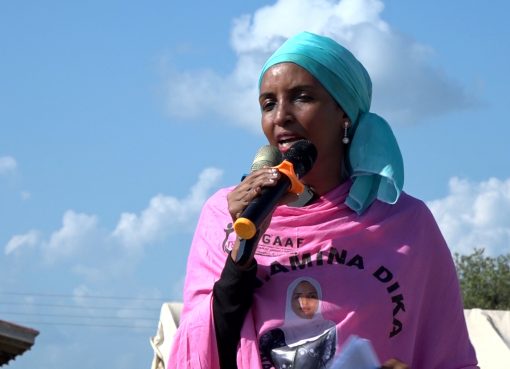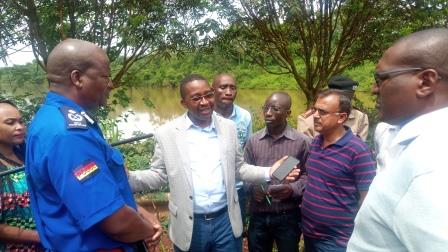The Government has opened negotiations with the contractor of Koru-Soin Dam to restart the stalled project.
This comes six months after the contractor, China Jianxi International Kenya Limited and China Jianxi International Economic and Cooperation Company Limited, suspended operations citing non-payment.
Water, Sanitation and Irrigation Cabinet Secretary (CS), Zachariah Njeru, said the 19.9 billion project fully funded by the government of Kenya, was critical in boosting water and food security.
The Government, he said, was committed to ensure that the project located on the border of Kisumu and Kericho counties, takes-off to boost rice production in Ahero.
Speaking during a tour of the project, the CS said once it is completed, the dam will feed water into Ahero Irrigation Scheme by gravity, thus lowering the cost of production.
Currently, the Scheme, he said, was using electric pumps, incurring up to Sh. 4.5 million bills every month.
“Once this dam is completed, we are going to decommission these pumps. This will be of immense benefit to the government and farmers, since the cost of production will come down,” he said.
Land under irrigation in the area, he added, was also set to be increased to help meet the deficit of rice in the country.
“Currently we are importing 700, 000 metric tonnes of rice annually, but with this project, we expect to produce enough to address this shortage,” he said.
Irrigation Principal Secretary (PS), Ephantus Kimotho, said the government was focusing on the Western region and Tana water basin to scale-up irrigation activities.
Last year, the State Department for Irrigation, he said, opened up 47, 933 acres for irrigation, adding that this year the drive targets to open up 60, 000 acres.
The move, which is aimed at boosting food security will see up to one million additional acres under irrigation by the year 2027.
“Western region is one of the areas we intend to intensify irrigation infrastructure. The region has one of the best water basins, which we want to maximize to boost food security,” he said.
By Chris Mahandara





